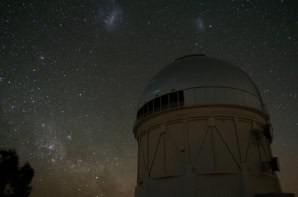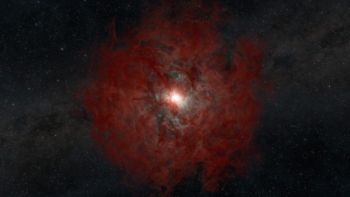Two theoretical physicists, Alan Guth and Andrei Linde, have shared the 2004 Cosmology Prize of the Peter Gruber Foundation for their work on the theory of cosmic inflation. Meanwhile another cosmologist, George Ellis, has won this year’s Templeton Prize for progress in religion.
The theory of inflation was proposed to explain various observations that could not be accounted for by the highly successful Big Bang theory of the Universe. For instance, how did the structure of the Universe become so uniform over large length scales? Based on ideas from particle physics and working at the Massachusetts Institute of Technology, Guth proposed that the Universe underwent an extremely short period of extremely rapid expansion immediately after the Big Bang. This inflationary period was able to explain the uniformity of the Universe and also solve other puzzles such as the “horizon problem”.
Linde, who is now at Stanford University, developed inflation further to explain the existence of objects such as stars and galaxies in this universe. Recent observations of the cosmic microwave background have agreed with the predictions of inflation and confirmed the Big Bang plus inflation model as the cornerstone of modern cosmology. Guth and Linde will receive their prize, which consists of a gold medal and $200 000, at the Smithsonian Institute in Washington, DC, in June.
Ellis is currently professor of applied mathematics at the University of Cape Town. The Templeton prize is awarded to “encourage and honour those who advance spiritual matters”, and the Templeton Foundation describes Ellis as being “renowned for his bold and innovative contributions to the dialogue between science and religion and [someone] whose social writings were condemned by government ministers in the former apartheid regime of his native South Africa.” Ellis – who plans to donate half of his $1.4 m prize money to charity – will receive the award at Buckingham Palace in May.



